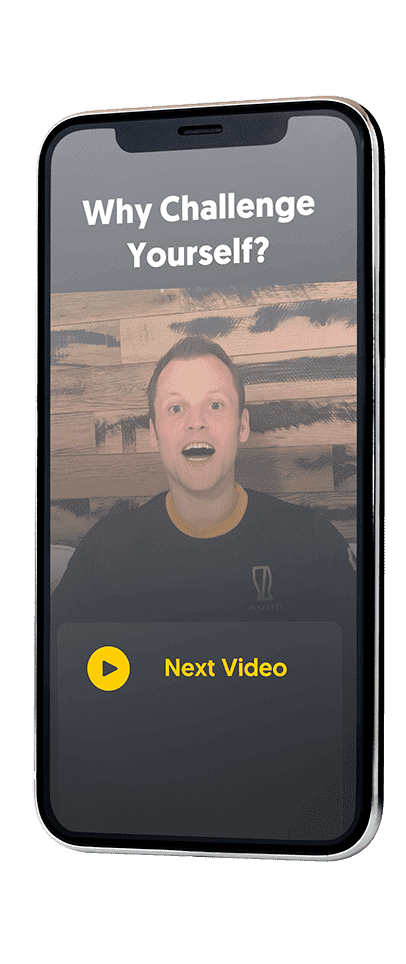Cravings testing your resolve? Catching you by surprise? Tempting you off course? We’ve got you.
You can have all the willpower and determination in the world but when those pesky cravings come calling, they can really put you to the test. Understanding what’s going on in your brain during these moments can help you prepare and stand strong in your commitment to change your habits.
What do we mean by cravings?
We’ve all felt them, whether it’s a hankering for something sweet like chocolate during that mid-afternoon slump, or comfort food like pizza when you’re tired after a long day. Cravings can be relatively harmless, but they can also be powerful, intense experiences that almost demand action to satisfy them. That’s where the craving can become a little less harmless, because if you’ve decided to stop consuming something that’s bad for you, then cravings can be strong enough to shake your resolve.
Alcohol cravings
There can be any number of reasons for craving alcohol. Think for a second about why you eat—sometimes it’s for energy, sometimes for pleasure, other times out of boredom or because feelings. Well, drinking alcohol can be the same: the desire to relieve social anxiety and connect with people around you, to veg out after a hard day, or from boredom, sadness, or frustration.
A research study defined three types of alcohol craving:
- Reward craving. The desire for some kind of reward, such as dopamine, endorphins, or another positive side effect.
- Relief craving. The need to decrease stress, anxiety or tension.
- Obsessive craving. Intrusive and regular thoughts about consuming alcohol.
Discovering the driving motivator behind the desire to drink, or what outcome you hope to achieve by drinking, can help you to work out what kind of craving you’re experiencing. Once you know what you’re trying to satisfy, it’s easier to see how you can swap in something else to deliver the same result—for example, finding other ways to get that dopamine hit, or to relieve stress.
How do cravings work?
When the brain recognises stimulus that it associates with drinking (perhaps a particular time of day, or sitting in a restaurant), it recalls a positive experience with alcohol and sends signals—in this case, cravings—to push you to carry out this behaviour. Any physical cravings you experience actually only last a few days after you stop drinking, but the mental associations can last much longer. This is where the real habit-rewiring is needed, as these cravings are purely in your mind. It becomes important to learn how to control your thought processes so you’re in the driver’s seat when it comes to making choices that are best for you. Cravings may never fully leave, but you can limit the triggers you face, and over time learn new behaviours so that cravings are less likely to trip you up.
What to do when cravings call
Have you ever heard about ‘surfing the urge’? Imagine you’re out on the ocean, sitting on your surfboard. As if from nowhere, along comes a huge wave. Someone who’s never surfed before might not realise how short-lived a wave can be, but if you just stand up on your board and allow yourself to ride the wave, it’ll soon pass. It’s the same with cravings—they can feel so overwhelming that it’s easy to cave in the moment, and it’s also easy to overestimate the intensity and longevity, but if you just settle into it, and allow it to wash over you, the craving will soon be over.
This is where mindfulness can be a valuable tool, as it can help you observe the cravings non-judgementally, see them for what they are, and allow them to pass by. Not only can practising mindfulness help you surf the urge, but it can also help you increase your self-awareness and tolerance for cravings, and in turn decrease your automatic responses to triggers. Becoming more aware of how you react in certain situations gives you more understanding when building strategies to manage cravings. You can practise mindfulness in a number of ways, from meditation, to mindfulness in nature, to journalling.
Another thing to consider is changing your surroundings. Your environment can be the biggest culprit for triggering cravings, so switching things up can help dissipate those urges quicker. For example, if you’re itching for a glass of wine as soon as you get home from work, try taking a bath or going for a walk to distract yourself instead.
How we can help
Unfortunately we can’t make your cravings disappear, but our challenges are designed to guide you in building strategies and techniques to manage cravings and limit the impact they have on your progress. By creating a complete mindset shift, you transform thought patterns and change the way you see alcohol, ultimately allowing you to take back control of when, and when not, to drink.
Interested in a few hacks to begin creating your own mindset shift? Try our free video guide, which outlines the most effective ways to change how you think about alcohol.

An entrepreneur and former senior oil broker, Ruari gave up drinking after excessive consumption almost cost him his marriage, and worse, his life. Going alcohol-free improved his relationships, career and energy levels, leading to him founding OYNB to provide a support network for others.









